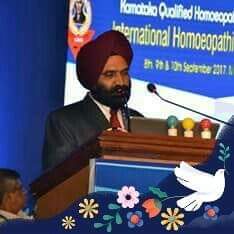HOMCEOPATHIC TREATMENT OF MASTITIS IN COWS
1. Holistic approach of treatment of Mastitis has been accepted
worldwide.
2. The cost of treatment is negligible.
3. Economic loss to the Nation is reduced.
4. Cures are Quick, Gentle, Economic and Effective.
5. Medicines are easily available.
6. Regains milk production quickly after attack of Mastitis.
7. Mortality of animals due to Mastitis is reduced.
8. Antibiotic drug resistance and residues avoided.
9. Help in production of organic milk.
The incidence of Mastitis in cows has increased drastically consequent on
introduction of cross breeding with exotic breeds not acclimatized in Indian
conditions resulting in great stress.
During the forty years of treatment of Mastitis with Homceo drugs, it has been
observed that more than 80 of the cows treated were of Hydrogenoid
constitution. Cows become victims of Mastitis when they are exposed to rains or
bathed in ponds/ lakes or in irrigation canals or washed using Motor pump sets.
The genetic makeup of the high producing animals predispose them to Mastitis
infection by lowering their immunity level. These animals develop Mastitis when
they are reared near standing waters or fed with forage rich in water.
.:. While selecting Homceopaihic remedies in Mastitis, colour and texture of
the milk and constitution of the cows have to be studied.
Organopathic approach in Homceopaihic treatment is only a quick guide and that
individualization is important. So always check with Materia Medica for the
selection of the remedy.
I. PERACUTE / ACUTE STAGES OF MASTITIS (ALSO REFER GANGRENE).
a) Aconite: lc-30c. Hourly four doses. Sudden onset, Mastitis with fear and
anxiety and nervous excitability, caused by exposure to dry cold winds or
drafts of air. Cows will be restless, fearful, worse at night, thirsty and may
have an accompanying cough. The temperature may range from
103 OF to 106 (39.5 to 41). You may use 30c or 200c, every hour for up to four
doses. Follow with Sulphur, when the temperature is in the 102 (39) range; and
flakes seen in the milk. If glandular hardness persists, consider Calcarea
Carbo
b) Arsenicum Album: 1M. Hourly for four doses and taper.
Great prostration, mentally restless, but physically too weak to move, burning
hot, painful udder and great thirst for small quantity of water at long
intervals. Anorexia, cannot bear the smell or sight of food (concentrates or
roughages. )
c) Belladonna.: 1M. Hourly four doses. Sudden and violent onset with high
fever, conjunctiva red, udder hot, swollen,
red and painful, sensitive to touch with dilated pupils and nervous symptoms.
Medicines that follow well are Bryonia, Calcarea Carb, Phosphorus or Sulphur.
Calc Carb is to be followed if the udder is hard and firm with less
sensitivity. Choose Sulphur if the temperature is lower, but the milk still has
flakes.
d) Bryonia: 1M. Hourly for two to three days. Pyrexia, Mouth dry, udder heavy
and hard like a stone. Hot, painful and aggravated by motion with desire for
absolute rest, mental or physical and for lying on painful side. Thirst for
large quantities of water at long intervals. A dry hard cough may be present. The
patient tries to be still as possible
e) Urtica Urens.: 30c. Four hourly. Sudden onset, urticarial swellings, udder
oedema extending to Perineum. Rheumatic pains of joints, loss of appetite, milk
watery, serous or blood tinged with flakes. Low potencies depress milk whereas
high potencies increase.
N.B.: most of the Toxaemic cases settle with Ars. Alb: 1M; Nux Vom: 1M or
Pyrogen: 1M and Calcarea Sulph: 3x- 30c. Mastitis may be cured with one or more
remedies noted above. If symptoms move on to sub-acute or chronic state,
appropriate remedy mentioned below has to be selected.
Home Editorial Board HOMEOPATH VETS TREATMENT OF BOVINE MASTITIS THROUGH HOMEOPATHY, PART-2 By- Surjit singh Makker,...


